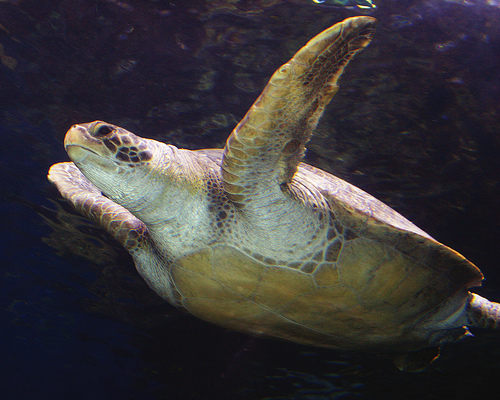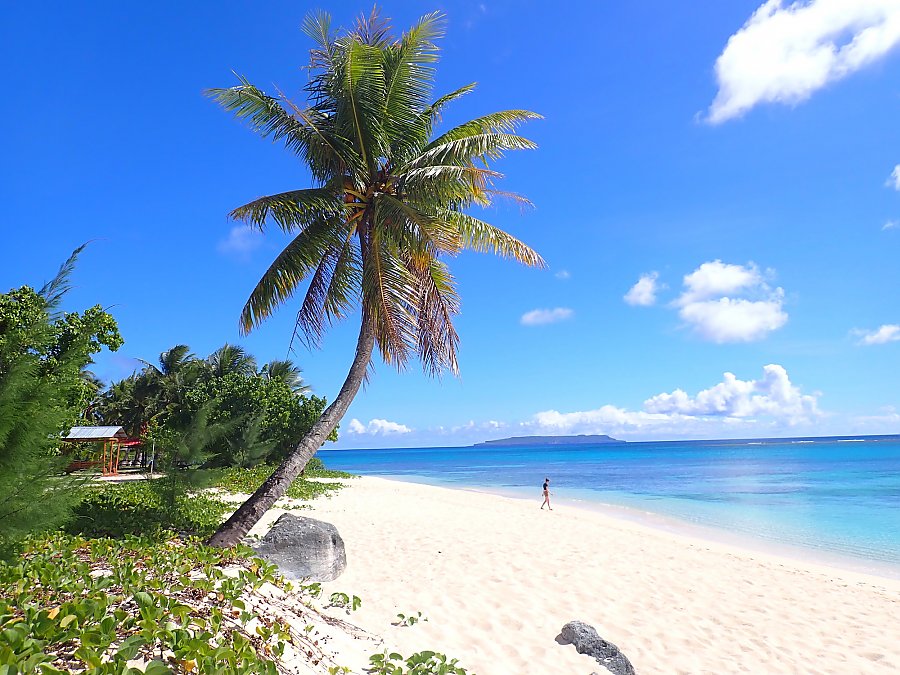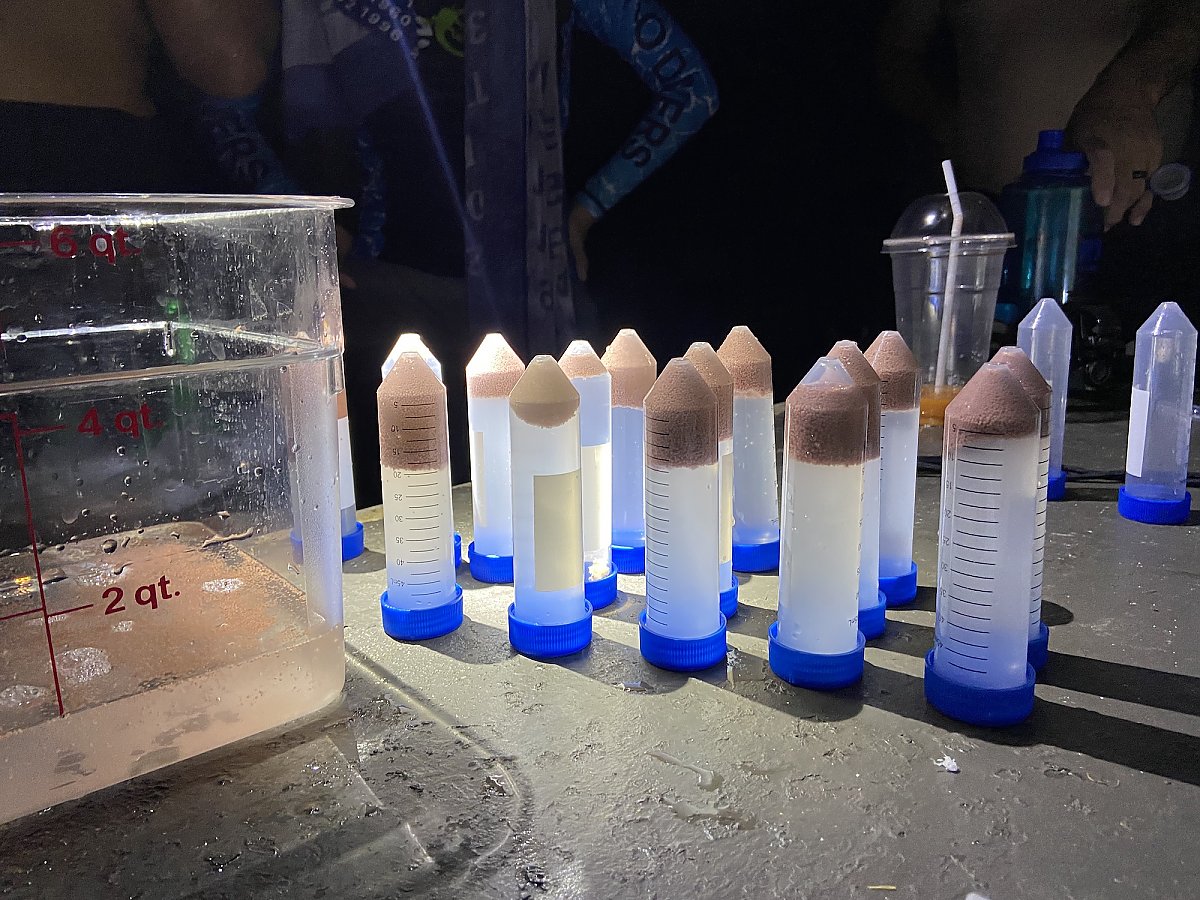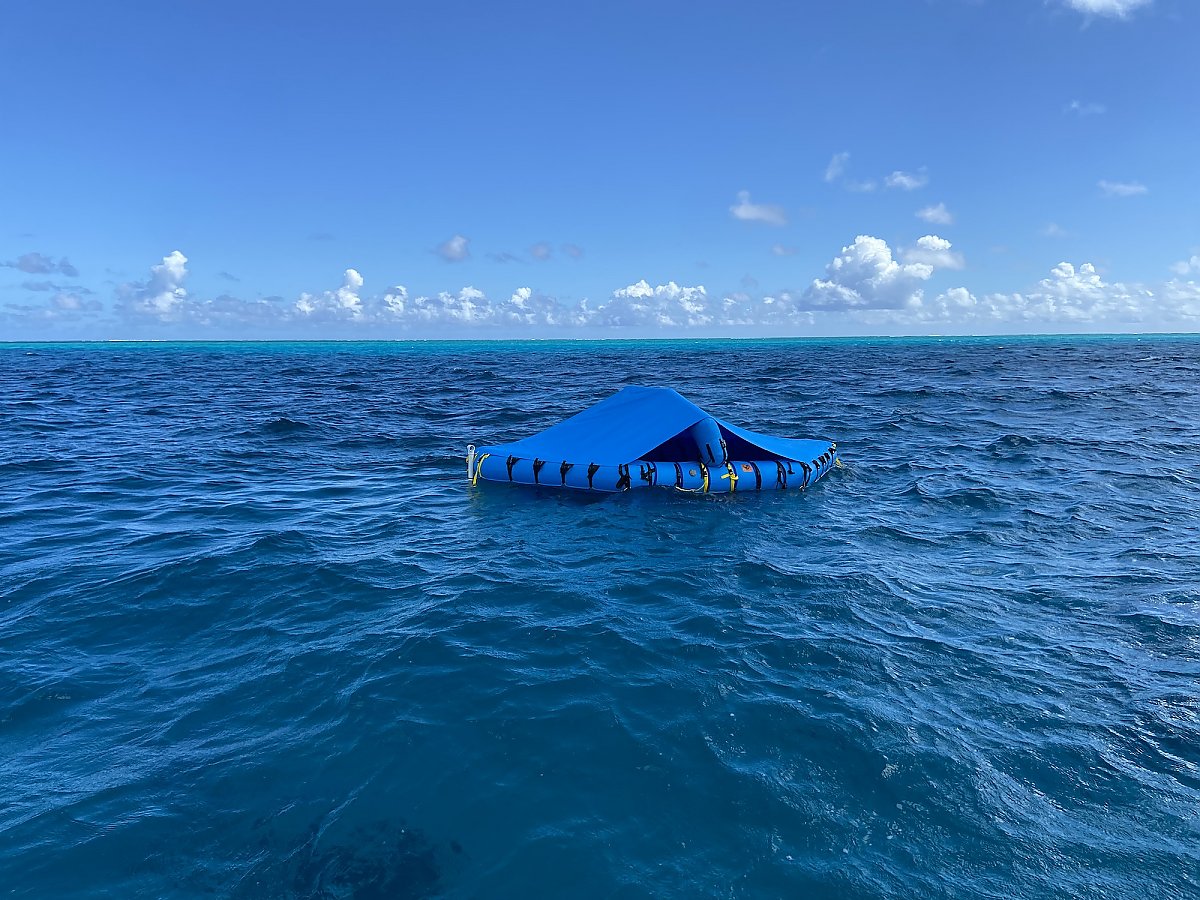
Ralphs
Discount tickets available at Ralphs for a limited time
The Aquarium’s longtime partnership with SECORE International has made it possible for several staff members to travel around the world to participate in hands-on coral reef restoration projects.

Credit: Nate Jaros
August 31, 2022
In May 2022 the Aquarium’s Curator of Fish and Invertebrates Nate Jaros traveled to Saipan in the Northern Mariana Islands to participate in a coral restoration project with SECORE International and Johnston Applied Marine Sciences (JAMS).
At the restoration site in a large, shallow lagoon, there are two species of staghorn corals that spawn during the full moon in May. Each night after sunset during that time, marine biologists with JAMS and SECORE and a group of more than a dozen local volunteers snorkeled out to predetermined areas and waited for the spawn to begin. In the space of just a few minutes the corals would simultaneously release egg and sperm bundles (gametes) that would float to the surface.
“The evolutionary processes at work that have allowed these simple animals to coordinate this mass reproductive spectacle is nothing short of mind-blowing,” Jaros said.
The scientists and volunteers collected the gametes and brought them to shore to observe and confirm the fertilization under a microscope. The developing embryos were then transported by boat to a floating coral lab. These floating labs make it possible for the scientists to grow the baby corals in a protected lab environment without a land-based facility, which can be costly. As they develop, eventually the coral larvae will settle onto small walnut-sized pieces of specialized ceramic. These will later be monitored as the corals grow at an underwater nursery site, then outplanted on the reef.
SECORE (Sexual Coral Reproduction) is a global network of scientists, public aquarium professionals, and local stakeholders using a multidisciplinary strategy combining research, education and outreach, and active reef restoration for the conservation of coral reefs. It is a non-profit organization whose work is actively supported by several other Association of Zoos and Aquarium (AZA) facilities. Aquarium staff members have participated in SECORE projects in Guam, Palau, Saipan, and the Bahamas.

Egg and sperm bundles collected in vials during the coral spawning were brought to shore to be monitored under a microscope to check for successful fertilization. Credit: Aric Bickle, SECORE International

The coral embryos were brought to floating labs in the lagoon to develop in a protected setting until they could be moved to underwater coral nurseries. Credit: Aric Bickle, SECORE International

Discount tickets available at Ralphs for a limited time